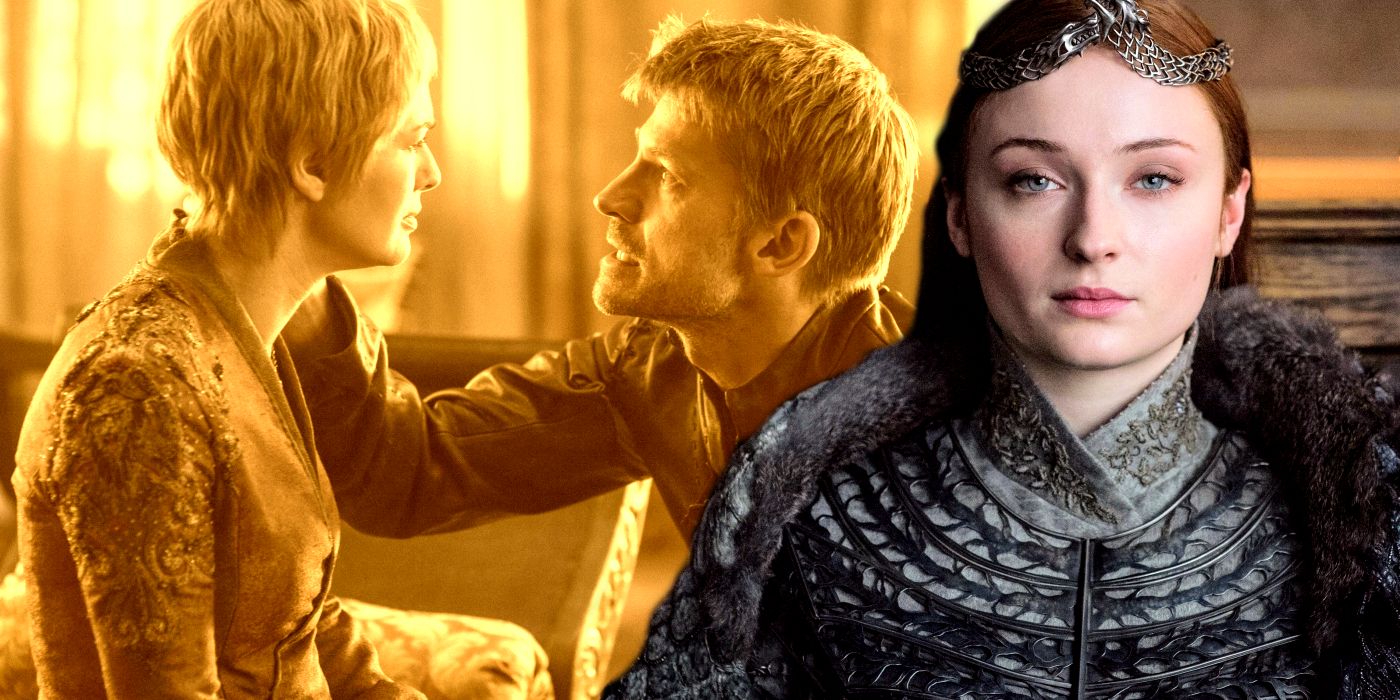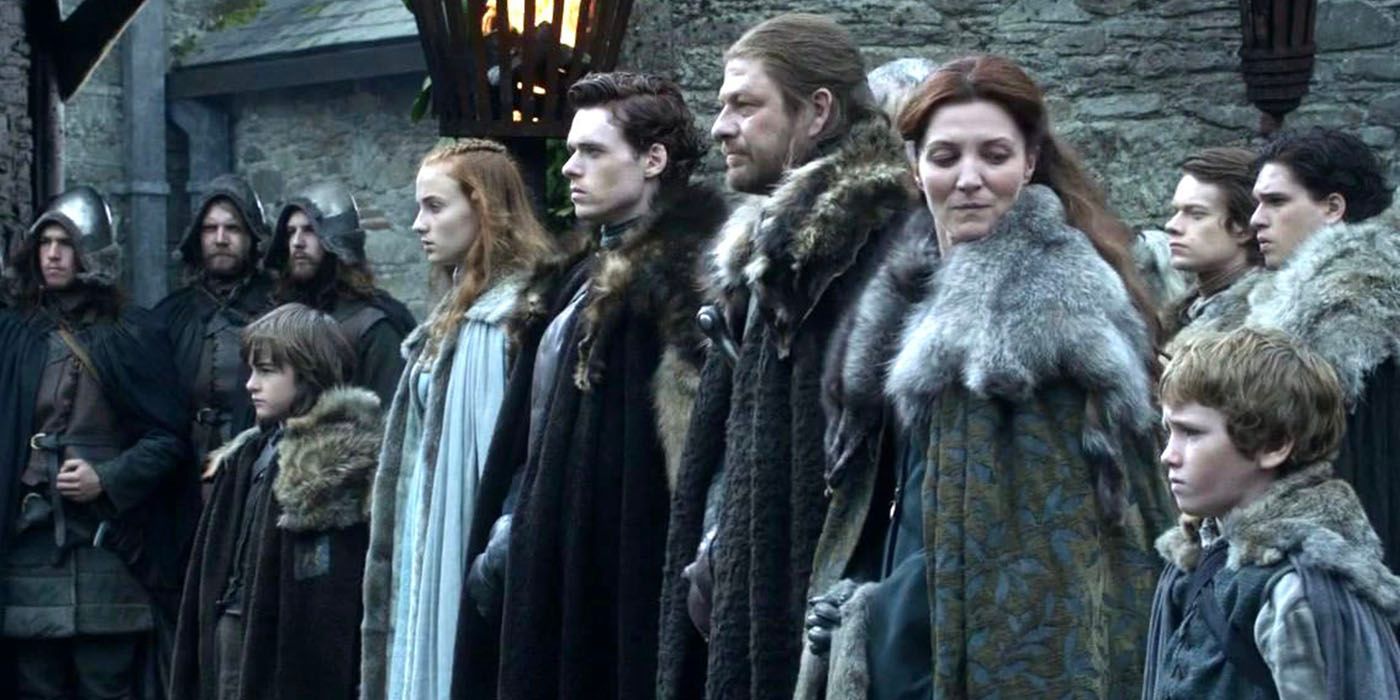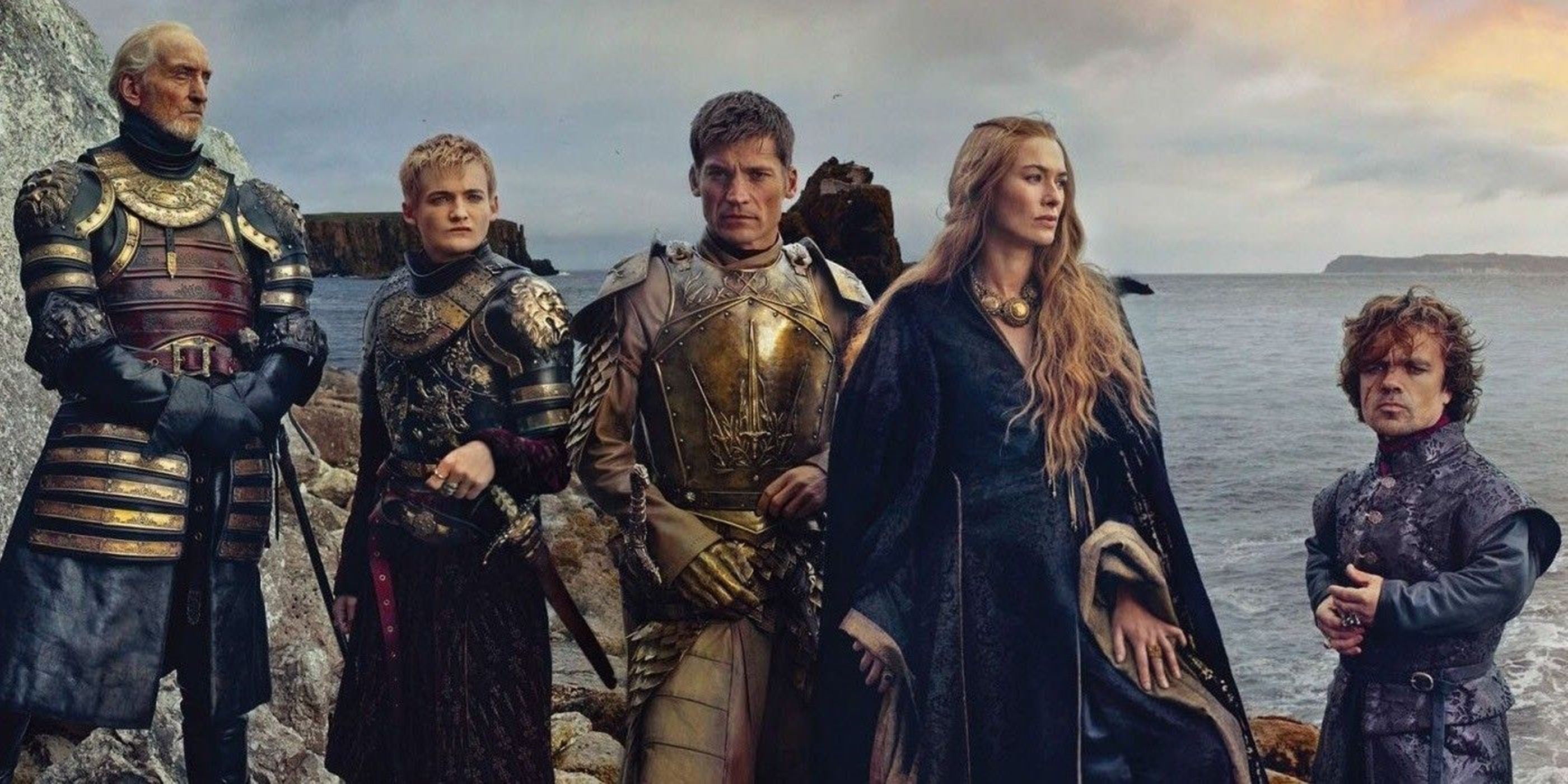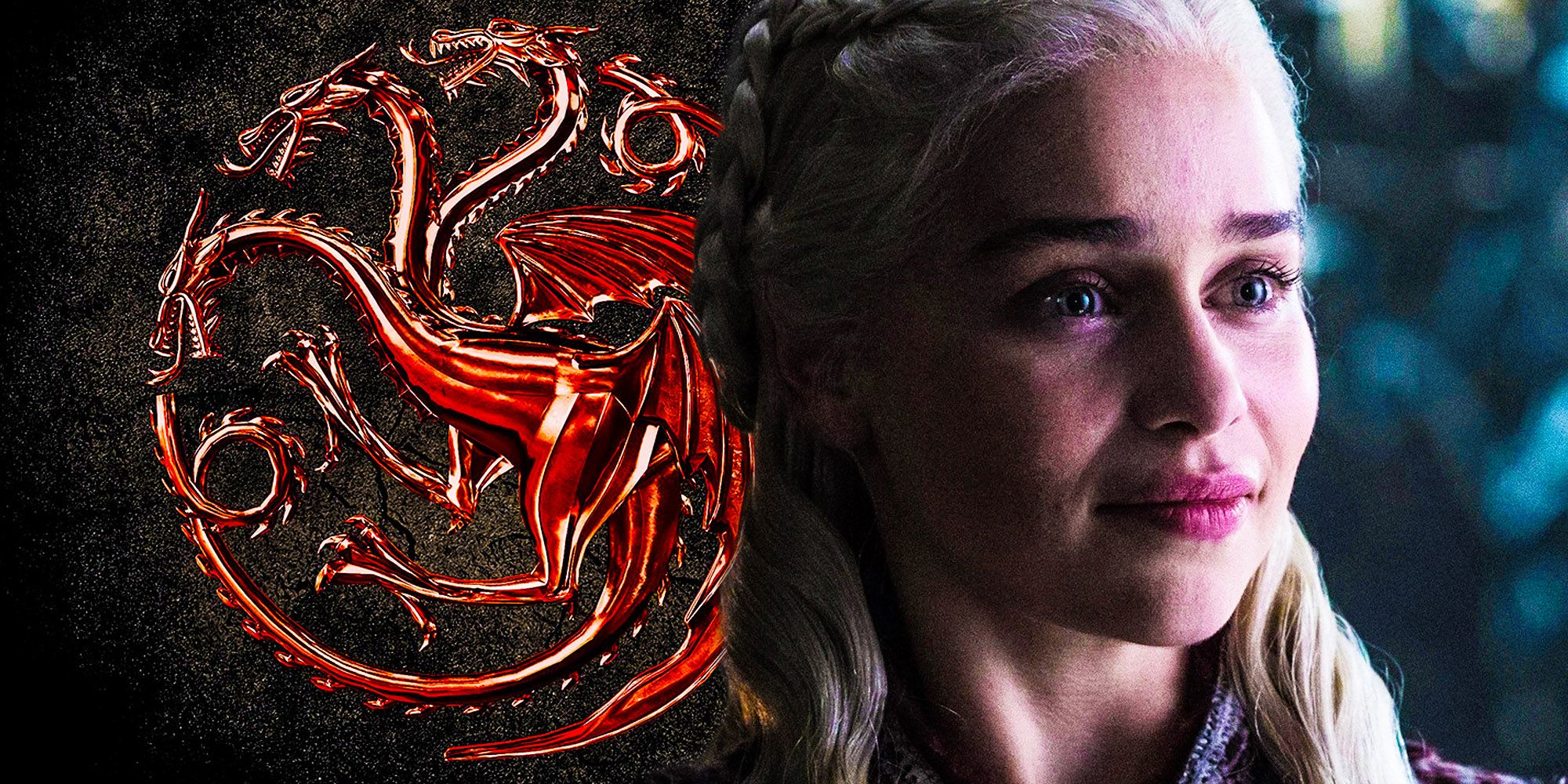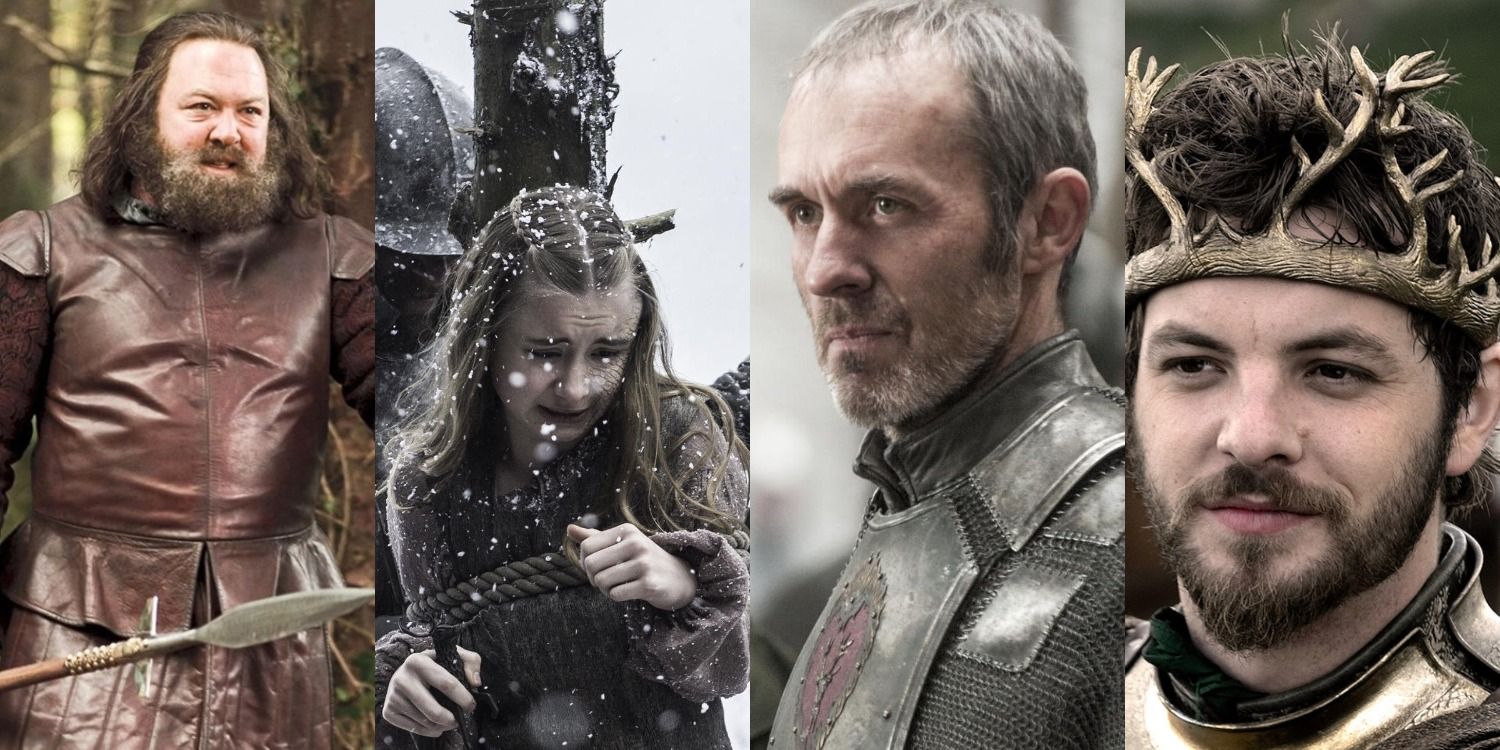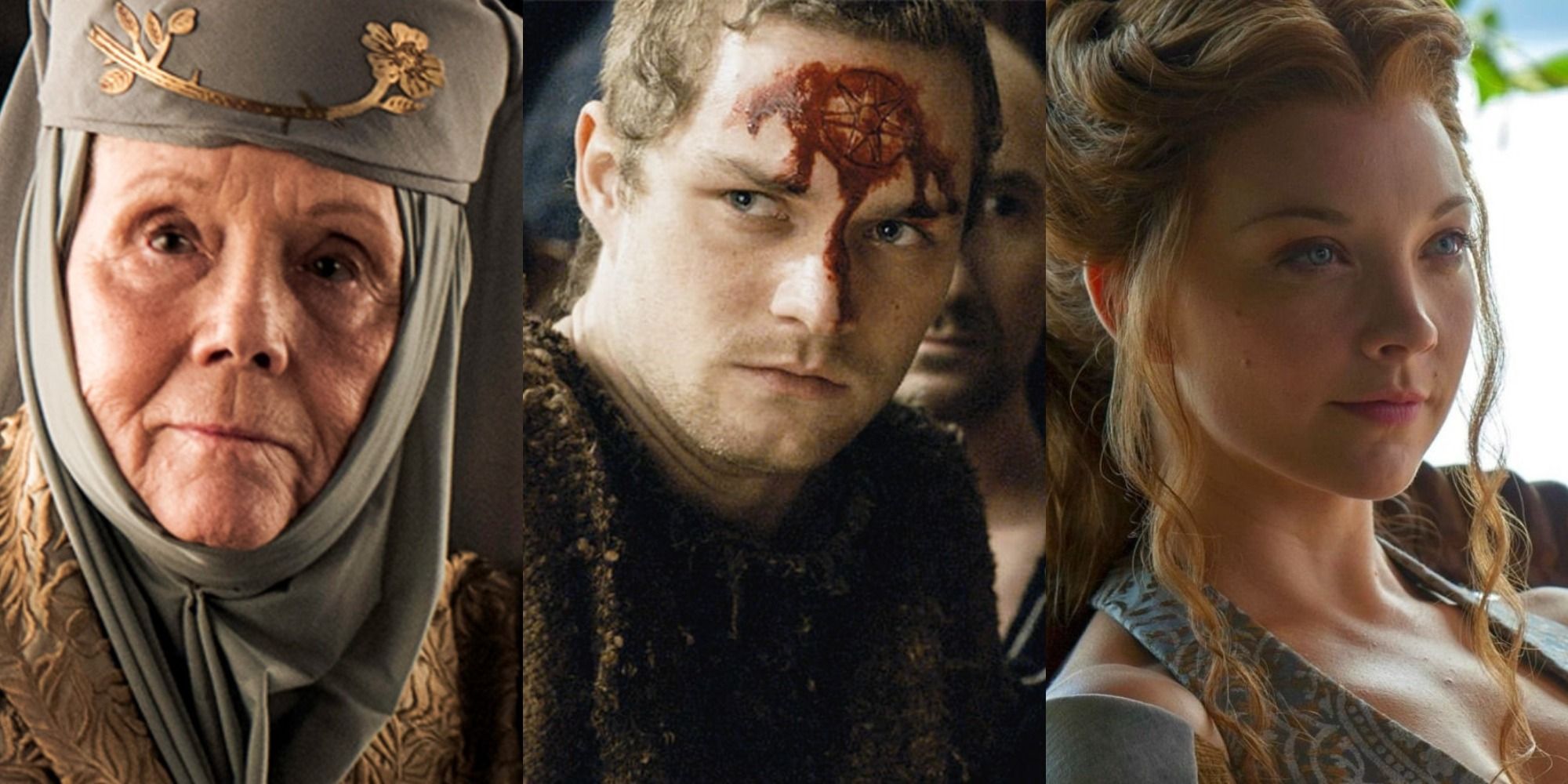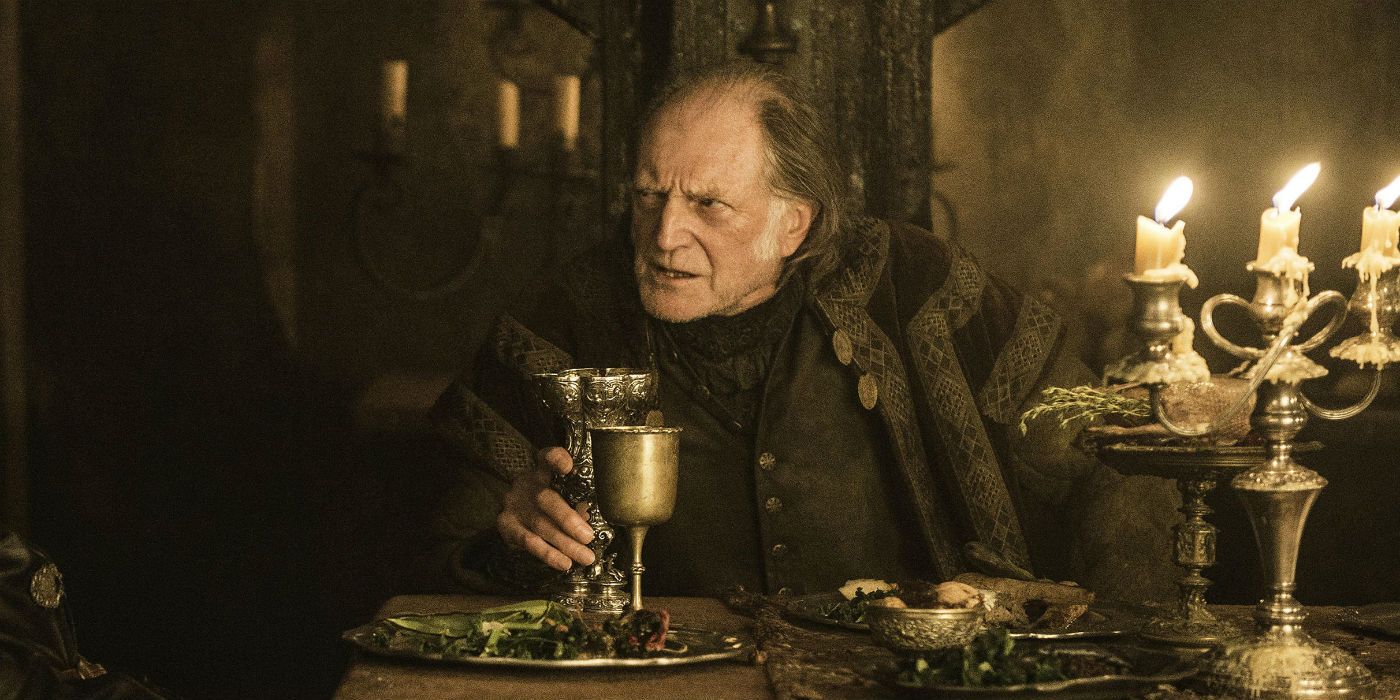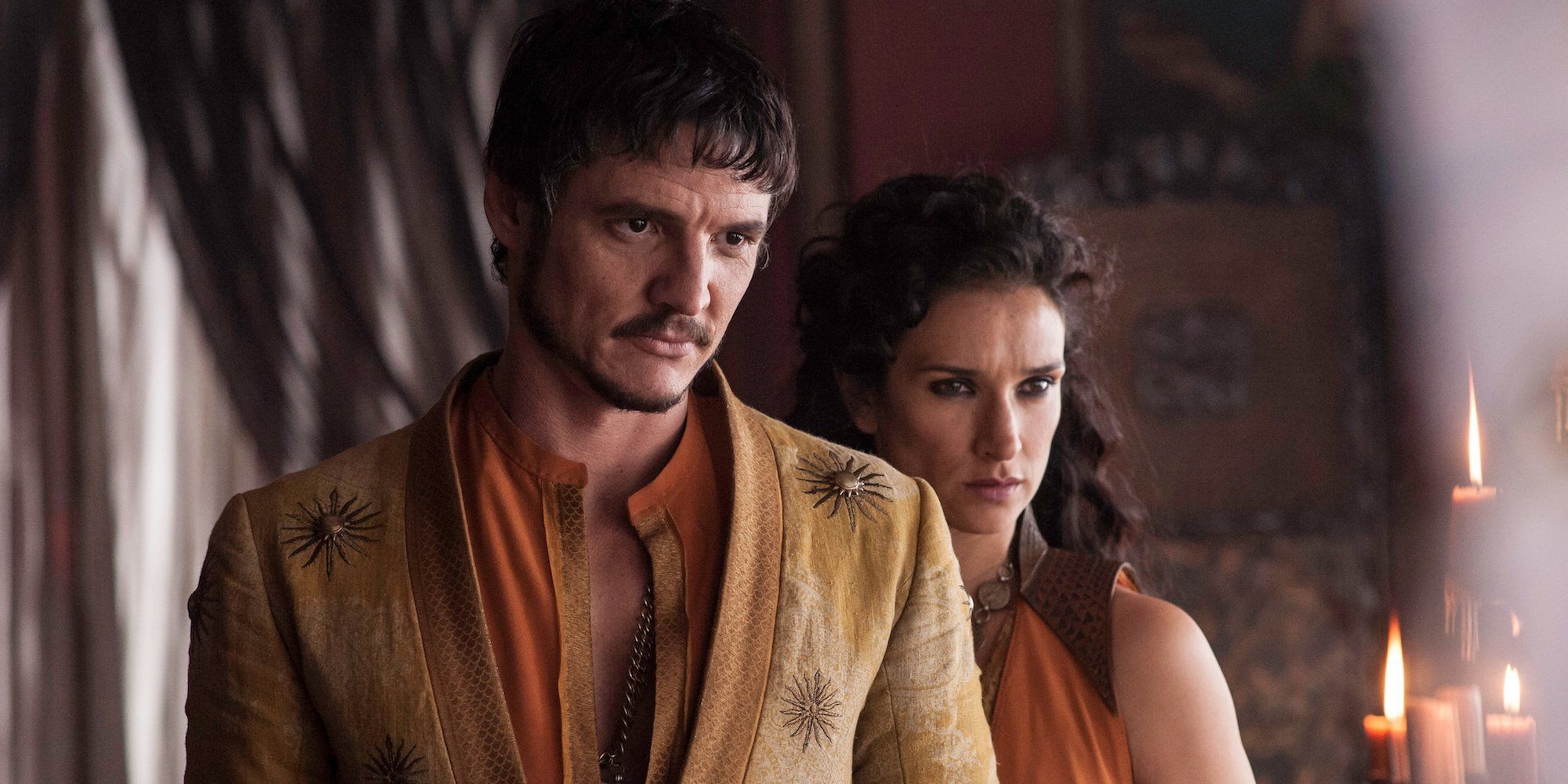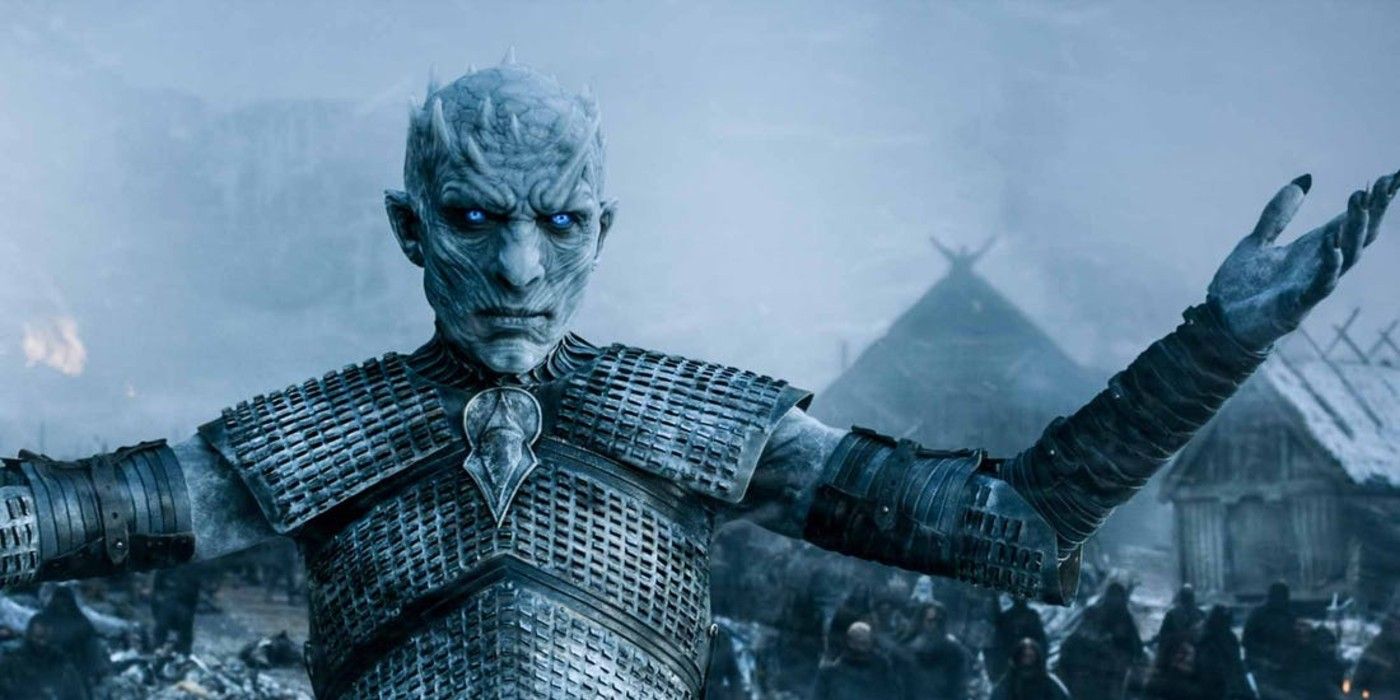The power dynamics and fates of the Game of Thrones characters are often thought to be symbolic of larger themes, with some fans theorizing that the major houses represent the bible’s seven deadly sins. The most prominently featured houses in Game of Thrones’ series, some of whom may have gone extinct by the finale, are typically remembered as Stark, Targaryen, Lannister, Greyjoy, Tyrell, Martell, Frey, Tully, and Baratheon. While this goes beyond the count for seven deadly sins, a popular theory uses the houses most integral to Game of Thrones’ story when comparing their faults, creeds, and demises to the fatal biblical sins.
Game of Thrones is particularly notable for its extensive symbolism both within the universe and to legends in the real world. Building on certain themes that prevail over Game of Thrones’ story, some fans theorized that the major houses in the series each represent the seven deadly sins from the bible: Envy, gluttony, greed, lust, pride, sloth, and wrath. Considering HBO's Game of Thrones does have several examples of biblical undertones and religious connections, a Seven Deadly Sins connection isn’t too far of a stretch.
Reddit user lobcity414 explained that the utter corruption of Game of Thrones’ houses paralleled the seven deadly sins from the bible, and such faults would end in the White Walkers wiping out the houses’ power. While much of the comparisons hold up as proper analyses on the shortcomings and fates of Game of Thrones’ major houses, certain aspects of the theory didn’t completely pan out in terms of how the user predicted the sins to affect the characters’ final episode resolutions. Here’s an explanation of the Game of Thrones houses representing the seven deadly sins theory, and whether the connections of their respective corruption ended up correlating to the outcomes of such houses.
House Stark - Pride
The Game of Thrones theory states that the non-extinct House Stark’s fatal sin is pride, which holds up as the most accurate comparison. House Stark’s legacy of pride, honor, and stubbornness, while noble, has also led to the demise of many of its most prominent members. Ned Stark’s honor and pride got him killed, Robb Stark’s pride after disobeying his vow to House Frey and honor in protecting Winterfell led to his own death, and Jon even refuses to bend the knee to Daenerys at first - House Stark is stuck in its old way, and their pride in their house and the North is both an asset and fault in their legacy. While the direwolf-represented Starks don’t follow suit in thinking themselves superior to other houses or putting their own wants before those of the North, their stubbornness and typical lack of humility make them the prominent Game of Thrones family who fits closest to this sin. But, in the end, their stubbornness is what led the family to survive, with all Stark children but Robb and Rickon surviving through the finale, with each member also being given a position of power or autonomy in the realm.
House Lannister - Lust
While House Lannister may be better associated with greed due to their power-hungry nature and indulgence in their notably vast wealth, the Game of Thrones fan theory associates the family with lust. This boils down to the lust between Cersei and Jaime, twin siblings whose incestuous relationship has brought danger to their family and even produced Game of Thrones’ most-hated villain, Joffrey. The Lannisters’ lust is also represented through Tyrion, who is notable for spending a significant amount of time in brothels around the Seven Kingdoms. Since lust is also associated with the unbridled desire for power and money, this perfectly aligns with House Lannister, who typically stops at nothing to gain their way to the Iron Throne and uses their wealth as leverage for their power. This deadly sin did end up impacting House Lannister’s resolutions at the end of Game of Thrones, with Jaime and Cersei dying together as they embrace, Tyrion excelling as a leader after he has given up his lustful ways, and Tywin being killed by Tyrion after he sees that his father has slept with Shae.
House Targaryen - Envy
Envy’s deadly sin works for the historic House Targaryen in terms of Daenerys and Viserys’ longing for the Iron Throne, but wrath could also be associated with the Game of Thrones family. After being exiled in Essos, Dany and Viserys spend the rest of their lives yearning for the Iron Throne and restoring the control of the Seven Kingdoms that their family maintained for centuries. Their path to gaining back this power would end in both of their downfalls, with Viserys’ jealousy over Dany’s power with the Dothraki leading to his death, while Dany’s insatiable desire for the fealty that other figures, like Jon Snow, possessed contributed to her own twist in fate. That said, the Game of Thrones theory would also work with the Targaryens symbolizing wrath, as the family is notable for conquering Westeros, being rageful with their enemies, and uncontrollably seeking revenge on those who betrayed them.
House Baratheon - Wrath
Considering wrath is what caused Game of Thrones’ war of Robert’s Rebellion, the house representing this deadly sin makes sense. Robert and Stannis were best known for their anger, rage, and war-minded pursuits, while Renly was still powerful on the battlefield as he also attempted to become King of the Seven Kingdoms. House Baratheon’s portrayal in Game of Thrones was marked by their anger even at one another, with their revengeful persistence in war becoming a staple of their legacy. The wrath of the Baratheons led to the three brothers’ deaths in Game of Thrones, but the house was saved by Gendry Baratheon (and before him, Stannis' daughter Shireen), whose lack of rage and level-headed demeanor led him to be legitimized as Robert Baratheon’s heir.
House Tyrell - Greed
Similar to House Lannister indulging in their wealth and power, House Tyrell’s sin is focused on their fatal desire for material possessions or titles. The greed of Game of Thrones' House Tyrell is marked by their planning for Margaery to become Queen of the Seven Kingdoms, her only real wish, and Olenna and Mace’s desire to see her there. The Tyrells are also flamboyant with their material possessions like clothes, wealth, and vast resources from Highgarden. At the end of Game of Thrones, the Tyrells’ greed in their desire for being put at the height of power led to their deaths, with each surviving member being killed by Cersei or Jaime Lannister.
House Frey - Sloth
While House Frey isn’t necessarily one of the great houses in Game of Thrones, they are a powerful and highly featured family in the series. They’re also the house that could be best associated with the bible’s deadly sin of sloth. The possibly extinct House Frey is notable for its lack of prowess on the battlefield, lack of intelligence in the fight for power (as it doesn’t really seek much), and typically just relies on the important location of the Twins as a way to maintain their position in the Seven Kingdoms. Sloth can be connected to feelings that elicit boredom or idleness, which can be applied to House Frey in every sense but the Red Wedding. They were even notable for being late to the battle of the trident in Robert’s Rebellion, which had already been won by the time they arrived. House Frey wasn’t even present enough to make it to the final season of Game of Thrones, as most of the male line was killed by Arya in season 7 as they all drank poisoned wine after she had fed Walder a pie made of his own sons.
House Martell - Gluttony
The Game of Thrones fan theory then casts Dorne’s House Martell with gluttony, which may be a bit of a stretch considering the only character who could truly be associated with this sin is Prince Doran. Gluttony is based on overindulgence in areas like food, sex, and fighting, which House Martell is notable for. The sin is more associated with too much desire for Earthly pleasures, and the Martells are known for enjoying the feats of fighting, the desires of sex, beautiful clothing, and extremely fanciful wines and food. Doran also notably has gout and can’t walk, which is known in Westeros as a disease for rich men due to overindulgence. At the same time, House Martell’s sins could also be associated with lust and wrath, especially since Oberyn’s death occurs in a duel that he won’t stop until his revenge is had. Similarly, the Sand Snakes all died as they tried to exact revenge for Oberyn’s death.
White Walkers - The Flood Of Noah’s Ark
Although not a house in Game of Thrones, the fan theory’s most interesting point is that it includes the general punishment for such sins. The theory speculates that the White Walkers equate to the flood in the bible that was intended to destroy mankind, as told in the story of Noah’s Ark. As such, the White Walkers are sent to wipe out humanity due to the immense corruption of Westerosi leaders, thus making them start anew. In the narrative of Noah’s Ark, God believed that mankind had become corrupt beyond the powers of salvation, so everything was destroyed except the species on Noah’s ark. While this aspect of the theory definitely tied the seven sins idea together, it ended up being fairly inconsequential to the story. The characters from Game of Thrones’ major houses survived the White Walkers and Wights' attack, and those who would perish later in the season were killed by further corruption and betrayals to one another. While the many deaths in Game of Thrones’ finale did signal a change in power and rule for the houses, it’s clear that corruption is not a bygone trait of Westeros due to the White Walkers.

